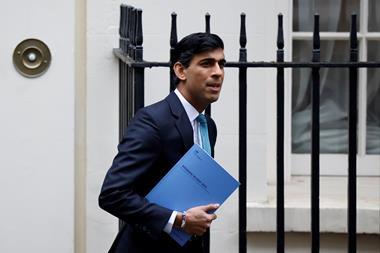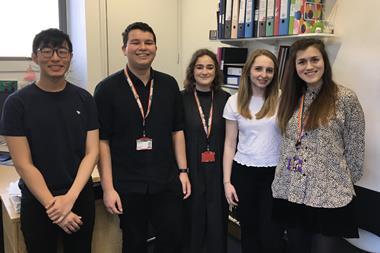Wellcome Leap, a US-based non-profit founded by the Wellcome Trust, has established a network of 21 leading universities and research institutions around the world to tackle cancer and infectious diseases collaboratively over the next five to 10 years. The organisation was set up last year with $300 million (£220 million) of seed funding.
The new Leap Health Breakthrough Network, which represents 150,000 researchers across six continents, includes Harvard, the Massachusetts Institute of Technology, members of the University of California system, as well as the National University of Singapore, and the University of Cape Town in South Africa.
The main goal of the initiative is to cut red tape that is typically involved in multi-institution and international research collaborations. Finalising such complex science funding agreements currently can take up to a year, and the work often can’t start until all parties have signed, Wellcome Leap pointed out.
The new network will avoid such bureaucratic obstacles through the use of a novel Master Academic Research Funding Agreement (Marfa) that addresses key terms and conditions like intellectual property, ownership and publication. After an organisation signs the Marfa, scientists or research groups will simply need to negotiate the statement of work and cost before funds can be transmitted and the work can begin. This should typically occur within a matter of days, Wellcome Leap said.
‘Science and engineering should move at the pace of breakthroughs, not the pace of contracting,’ stated Wellcome Leap’s chief executive, Regina Dugan. ‘Wellcome Leap has removed traditional obstacles to build a network that can mobilise and synchronise to solve problems in human health faster than has ever been possible.’
The Covid-19 pandemic has made it clear just how important it is to tackle urgent, large-scale health challenges quickly and across disciplines, organisations and borders, according to Wellcome Leap. Good ideas need to be identified and funded quickly, and researchers from different institutions are going to have to build solutions together, the organisation said.
‘Wellcome Leap has catalysed a first-ever global network that will help deliver, well beyond this pandemic, new breakthroughs along what would previously have been considered impossible timelines,’ said Richard Hatchett, chief executive of the Coalition for Epidemic Preparedness Innovations in Norway.

















No comments yet